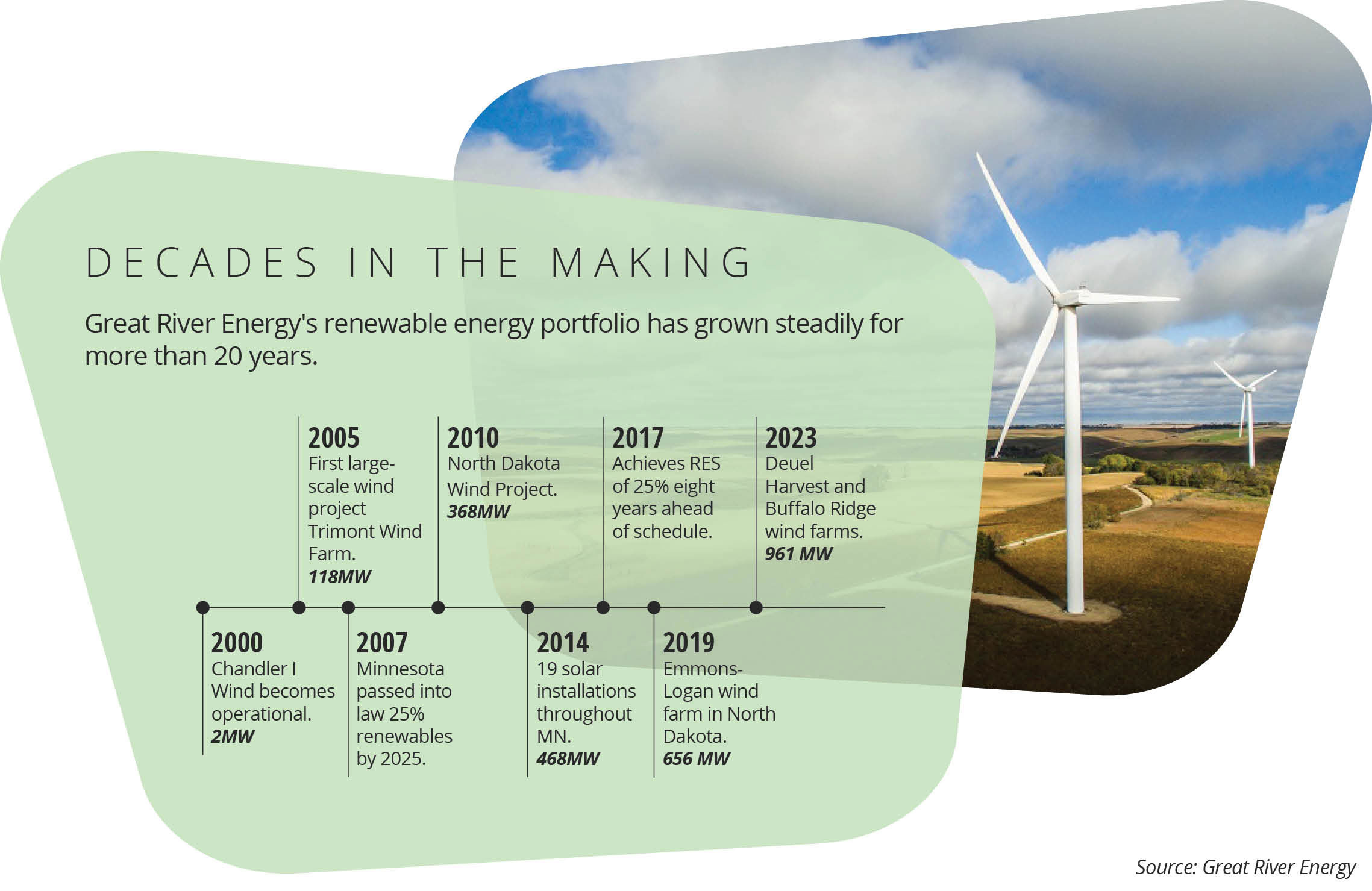ENERGY BILL
Governor Tim Walz signed a clean energy bill into law that will set Minnesota utilities on a path to go carbon-free by 2040.
The 100% by 2040 legislation puts Minnesota at the forefront of energy and climate policy and aims to further shift utilities away from fossil fuels to wind, solar and other non-carbon emitting resources.
The bill includes changes proposed by Minnesota Rural Electric Association (MREA) and Great River Energy. MREA lowered the first milestone of the carbon-free standard (CFS) from 80% to 60% in 2030 for cooperatives and municipal utilities. Additionally, Great River Energy amended the language to allow Renewable Energy Credits (RECs) to be used to comply with both the renewable energy standard (RES) and the new CFS. Lastly, changes were made to allow net MISO purchases to meet the CFS after factoring in the
level of carbon free generation in MISO. These changes will continue to allow peaking plants to run as well as give credit for carbon capture and sequestration technology.
Dakota Electric’s power provider, Great River Energy, has been transitioning to a largely renewable and less carbon intensive energy portfolio for years. They are well on their way to reducing their carbon dioxide emissions by 80% by 2032. Great River Energy started off 2023 by adding two new wind agreements, one in eastern South Dakota and another in Lincoln County, Minnesota, that will collectively add more than 300 megawatts of wind energy with zero emissions in 2023.
As Great River Energy transitions to a largely renewable portfolio of energy resources, cost and reliability continue to remain top priority. Dakota Electric and Great River Energy will continue to work together to deploy energy efficiency and demand response programs that make electricity more sustainable, affordable and reliable.



